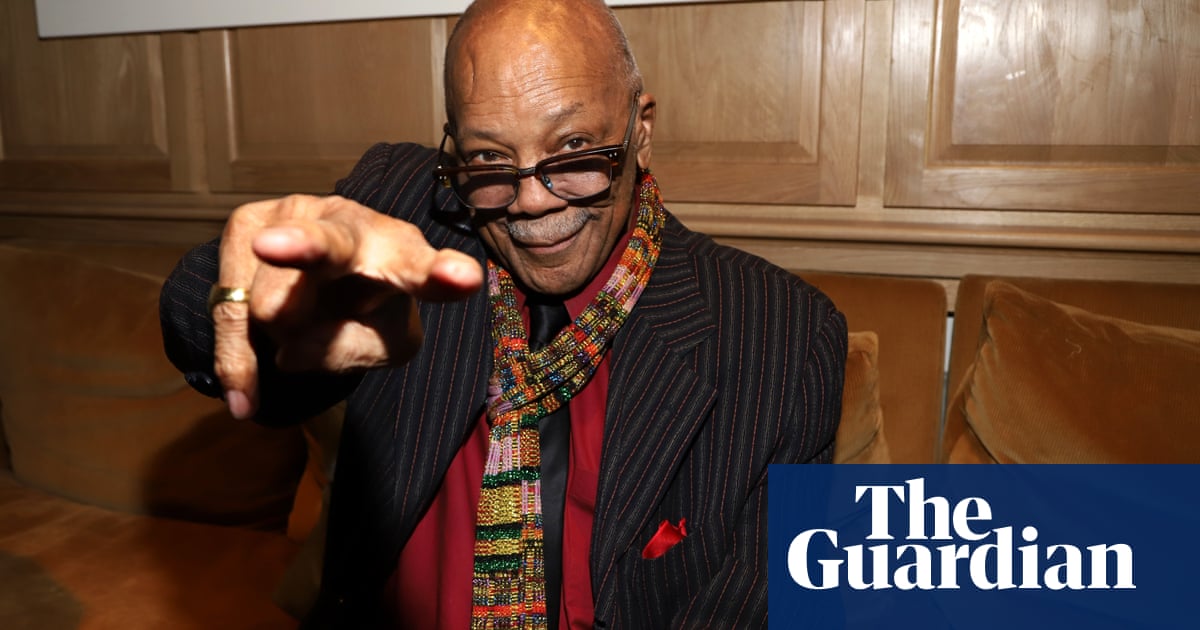And then he says: “OK, we’re gonna do this thing for Michael, it’s called Beat It. I want you to come up with something that nobody’s ever done before.” So I came up with that little riff that’s on the record – I was just trying to be creative. Quincy always pushed you to be your best, to come up with something unique and special. He had a way of bringing out the best in people.
Working with Quincy was like going to music school. He taught me so much about production, about arranging, about how to make a song really come to life. And he did it all with such grace and humility – he never acted like he was above anyone else, even though he was a legend. That’s what made him so special, so beloved by everyone who worked with him.
Quincy Jones is a true master of his craft, a musical genius who has left an indelible mark on the world of music. His unique ability to bring together the best musicians and create timeless, unforgettable music is a testament to his talent and his passion for his art. Working with him was an honor and a privilege, and I will always be grateful for the experience.
Working with Quincy Jones was a dream come true for many musicians, including myself. His ability to bring together different genres and generations of artists was truly inspiring. The way he approached music with fearlessness and a lack of boundaries showed me that there are no limits to what can be achieved in music. His legacy is like an action movie, filled with love, drama, and heroism. Quincy Jones is a true icon in the music industry, and I am grateful for the opportunity to have worked with him and learned from him.
Quincy Jones, may he rest in peace, always emphasized that the song should take precedence over anyone’s ego. This is a valuable lesson that can be applied in any creative endeavor.
Marc Kinchen, also known as MK, had a successful career as a producer and DJ in the house music scene of the early 90s. He continues to achieve Top 10 hits today, even after returning to dance music. However, a pivotal meeting with Quincy Jones in the mid-1990s steered him in a different direction for over a decade.
Kinchen admired Quincy Jones for his unique approach to music production. Each of Quincy’s songs had its own distinctive sound, showcasing his versatility as a musician and producer. Kinchen aspired to possess the same level of musical proficiency and understanding of theory that Quincy had. He made it a point to teach himself music theory as a hobby, in pursuit of becoming a well-rounded producer.
In 1996, Kinchen had temporarily shifted away from house music and was focusing on R&B and hip-hop. A chance encounter with Quincy Jones through Jay Brown, who worked with Quincy, led to a life-changing opportunity. Quincy was impressed by Kinchen’s music and invited him to Los Angeles to discuss a potential signing with his publishing company. During their meeting, Quincy shared a personal regret with Kinchen – not spending enough time with his children due to his demanding work schedule. This revelation struck a chord with Kinchen, who made a conscious effort to prioritize his family over his career.
Working with Quincy exposed Kinchen to innovative techniques in music production, such as using a synthesizer on a guitar amp to create unique sounds. Quincy’s meticulous attention to detail and ability to provide constructive feedback left a lasting impression on Kinchen. Quincy’s advice that it takes around 30 songs to create a hit resonated with Kinchen, inspiring him to keep pushing his creative boundaries.
The experience of collaborating with A-list artists in Quincy’s studio was a turning point in Kinchen’s career. However, as the music industry landscape evolved post-9/11 and the rise of digital piracy, Kinchen found himself disillusioned with the rat race of getting songs placed on albums. He decided to pivot back to the dance music scene, armed with valuable insights gained from his time in the mainstream music industry.
Kinchen’s foray into the pop and R&B world exposed him to the inner workings of major labels and the business side of music production. He learned valuable lessons on originality, understanding audience demographics, and catering to label expectations for a song’s success. Drawing from Quincy’s mentorship, Kinchen embraced the importance of staying true to his unique sound and not succumbing to trends.
In conclusion, Quincy Jones’ influence on Marc Kinchen’s career transcended music production, instilling valuable lessons that shaped Kinchen’s artistic journey. Kinchen’s experiences with Quincy served as a guiding light, steering him towards a path of authenticity and creative fulfillment in the ever-evolving music industry. Hello! How can I assist you today?
